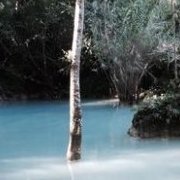Dugong dilemma: Thailand’s gentle sea giants face extinction risk
-
Recently Browsing 0 members
- No registered users viewing this page.
-
Topics
-
-
Popular Contributors
-
-
Latest posts...
-
148
Middle East Gaza Grief: Children Pay Hefty Price in Ongoing Conflict
No. I don't think any countries in the ME are civilised. Israel are just the best of a bad bunch because they an ally among all the nutcases. -
75
USA Trump Sues Wall Street Journal Over Epstein Birthday Letter Claim
Absolute cowardice by Trump. Whilst he is in power he has full protection against his defaming his fellow citizens, even going so far to defund public media organisations, including more the 1,500 local radio and TV stations. Astounding hypocrisy. -
30
Video Fatal Collision in Bangkok: Esteemed Officer Killed by Truck
Yeah, its alot better to feel free to be angry. Cultures that suppress emotions are unnatural to say the least -
148
Middle East Gaza Grief: Children Pay Hefty Price in Ongoing Conflict
Wouldn't they want to leave the open air prison/concentration camp to escape genocide ? I wouldn't think that any would want to stay there -
148
Middle East Gaza Grief: Children Pay Hefty Price in Ongoing Conflict
Your biased one said most Jews in Israel want to expel all Gaza’s , do you think this is acceptable? -
58
Advice On Moving Back To Pattaya
I went along that street by Nirun the other day on my way to Big C. I saw that same bearded guy sitting in a bar alone staring (only customer in there). It was a different bar, but the same guy. It was the same guy from a year ago... 🤣
-
-
Popular in The Pub

.thumb.jpeg.d2d19a66404642fd9ff62d6262fd153e.jpeg)









Recommended Posts
Create an account or sign in to comment
You need to be a member in order to leave a comment
Create an account
Sign up for a new account in our community. It's easy!
Register a new accountSign in
Already have an account? Sign in here.
Sign In Now